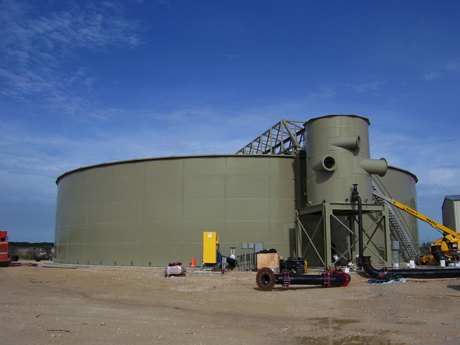
The goal of the water treatment process is to remove existing contaminants in the water, or reduce the concentration of such contaminants so the water becomes fit for its desired end-use.
One such use is returning water that has been used back into the natural environment without adverse ecological impact.
Uses of the water treatment process are in agricultural wastewater treatment, ecological sanitation, industrial wastewater treatment, peak water (water supply & demand), water pollution and water quality.
Types of Wastewater Processes:
Water purification is the removal of contaminants from untreated water to produce drinking water that is pure enough for its intended use, most commonly human consumption. Processes involved in treating water for drinking purpose may be solids separation using physical processes such as settling and filtration, and chemical processes such as disinfection and coagulation.
Sewage treatment is the process that removes the majority of the contaminants from wastewater or sewage and produces both a liquid effluent suitable for disposal to the natural environment and a sludge. Biological processes are also employed in the treatment of wastewater and these processes may include aerated lagoons, activated sludge or slow sand filters. At the simplest level, treatment of sewage and most wastewaters are carried out through separation of solids from liquids, usually by settlement.
Tank usage for Industrial Wastewater Treatment is a very demanding application and for that reason, glass and ultra-high grade epoxies are used as coatings on steel storage tanks, utilizing the highest grade glass-fused-to-steel and proprietary epoxies products and process.
Industrial Wastewater Treatment processes require: pH balancing tanks, Raw waste storage, Clarifiers, Effluent storage, Sequencing Batch Reactors, Holding tanks, Aerobic digesters, Anaerobic digesters, Flocculation tanks, Dewatered sludge silos, Chlorination tanks and Aluminum geodesic domes and covers for existing tanks.
Wastewater Tanks for Municipal Wastewater Treatment is a vital part of the development of humanity. Limits of public funding require equipment that offers the lowest in lifetime costs with incomparable quality. Because municipal wastewater treatment systems include human waste and wastewater output from sinks, bathtubs, showers, drains, washing machines, and garbage disposals, pre-engineered sectional steel treatment tanks with glass fused-to-steel and high-grade epoxy coatings provide the best solution for municipal wastewater treatment.



